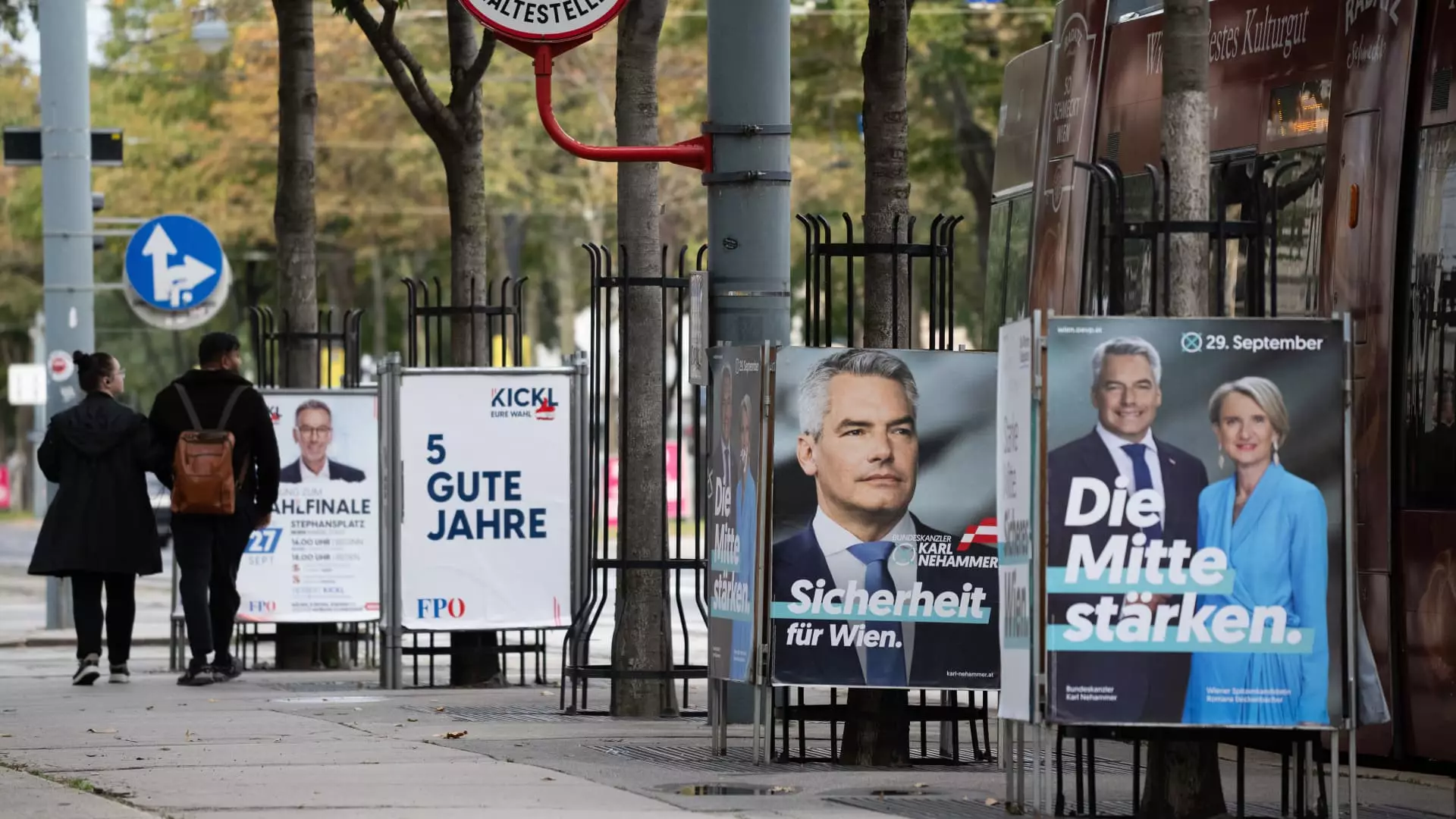The recent election results in Austria have sparked significant discussions both nationally and across Europe, marking a potential turning point in the continent’s political dynamics. As the far-right Freedom Party (FPÖ), rooted in a controversial history, surged to the forefront of the political landscape, observers are left to contemplate the broader repercussions of such a shift not only on Austria but also on the wider European context and geopolitical interactions with Russia.
The Austrian elections on Sunday revealed a striking victory for the FPÖ, securing approximately 29.1% of the vote, thereby surpassing the ruling conservative Austrian People’s Party (ÖVP), which garnered around 26.2%. The Social Democratic Party (SPÖ) followed with 20.4%, solidifying the notion that traditional parties are increasingly being challenged by movements characterized by populist and nationalist sentiments. The FPÖ’s rise is emblematic of a broader trend seen across Europe, where far-right factions have begun to gain traction, underpinned by growing public dissatisfaction with immigration policies, economic uncertainties, and social changes.
This result not only indicates a shift in voter sentiment but also raises questions about the direction of Australia’s domestic policy and its relationship with Europe and beyond. The FPÖ’s historical roots trace back to post-war politics founded by former Nazis, leading to significant apprehensions about the revival of extremist ideologies. Despite the party’s attempts to distance itself from its ominous origins, its rhetoric and policies reflect a continuation of nationalist and anti-immigrant attitudes that resonate with a substantial segment of the population.
While the FPÖ’s electoral success may seem like a decisive achievement, it is crucial to note that the party has not secured an absolute majority. This predicament sets the stage for potentially complex coalition negotiations in a political environment where other parties have expressed reluctance to ally with the far-right. The ÖVP, once a coalition partner of the FPÖ, has so far maintained a firm stance against cooperating with Herbert Kickl’s party, further complicating the possibility of forming a stable government.
Political analysts predict a tumultuous period of negotiations as parties grapple with the task of maintaining governance while establishing a clear stance against the rising tide of far-right ideology. This reluctance to engage with the FPÖ reflects broader concerns among political elites regarding the normalization of extremist viewpoints and the potential ramifications for Austria’s democratic framework.
The FPÖ’s platform is not just anchored in domestic issues; geopolitically, its alignment with pro-Russia sentiments stirs a sense of unease among European leaders. The call to reevaluate Austria’s role in supporting Ukraine and advocating for the removal of sanctions against Russia signifies a potential drift away from established European Union policies. This shift could have serious implications for the EU’s collective security stance and raise questions about Austria’s commitments to transatlantic alliances.
In a time marked by its critical location at the crossroads of Europe, Austria has traditionally played a neutral role, serving as a mediator in international conflicts. Yet, with the emergence of a government that leans towards Russia and adopts a xenophobic agenda, this neutral status could be jeopardized. The resulting instability could invite external pressures and influence, challenging Austria’s autonomy and its historical position as a diplomatic hub.
As the FPÖ capitalizes on economic challenges and societal fears surrounding immigration, the electorate’s acceptance of such rhetoric suggests a deeper cultural shift within Austria. The frustration stemming from high inflation, housing shortages, and job insecurities has emboldened the FPÖ, allowing it to capture the disillusionment of voters who seek drastic solutions. This trend bears watching, as it may reflect underlying sentiments across Europe where populist narratives are increasingly resonant amid economic hardships.
Regardless of coalition formation, the election marks a concerning milestone for Austria, signifying a resurgence of ideologies that many believed had been relegated to the past. The outcome serves as both a wake-up call to policymakers and a critical juncture for the EU as it contemplates actions to counterbalance the influences of far-right movements.
The FPÖ’s electoral success presents a complex tapestry of challenges and uncertainties for Austria and Europe at large. As the continent grapples with the implications of this political shift, the need for progressive discourse and the reaffirmation of democratic values will be paramount in navigating the turbulent waters ahead.


Leave a Reply